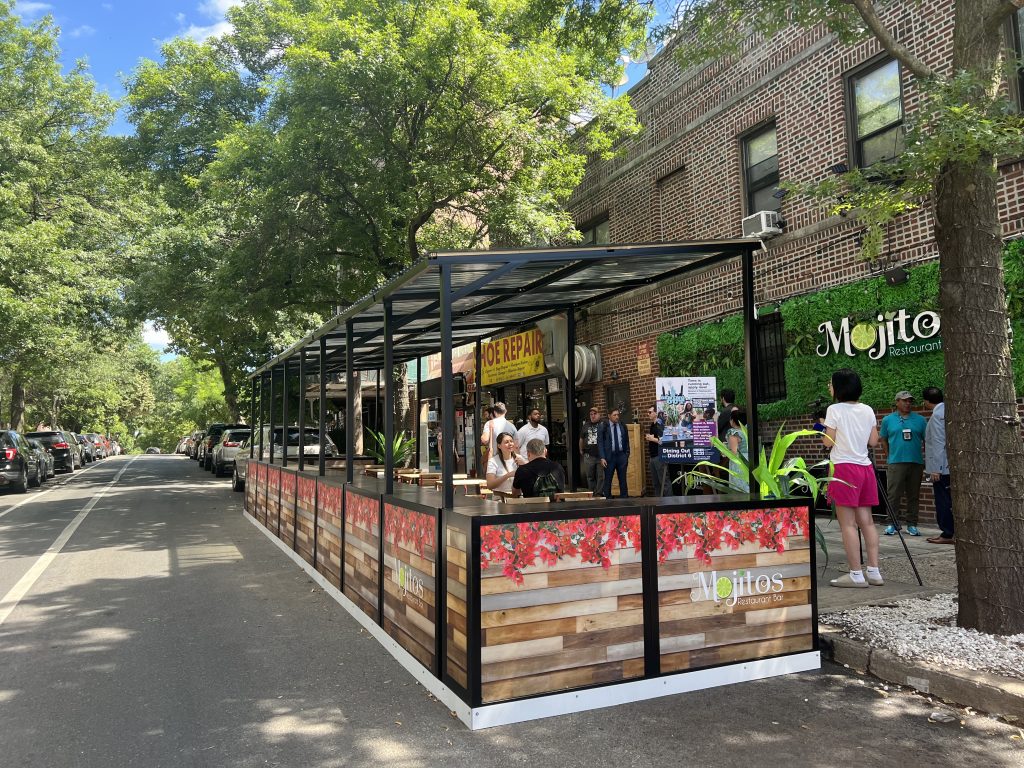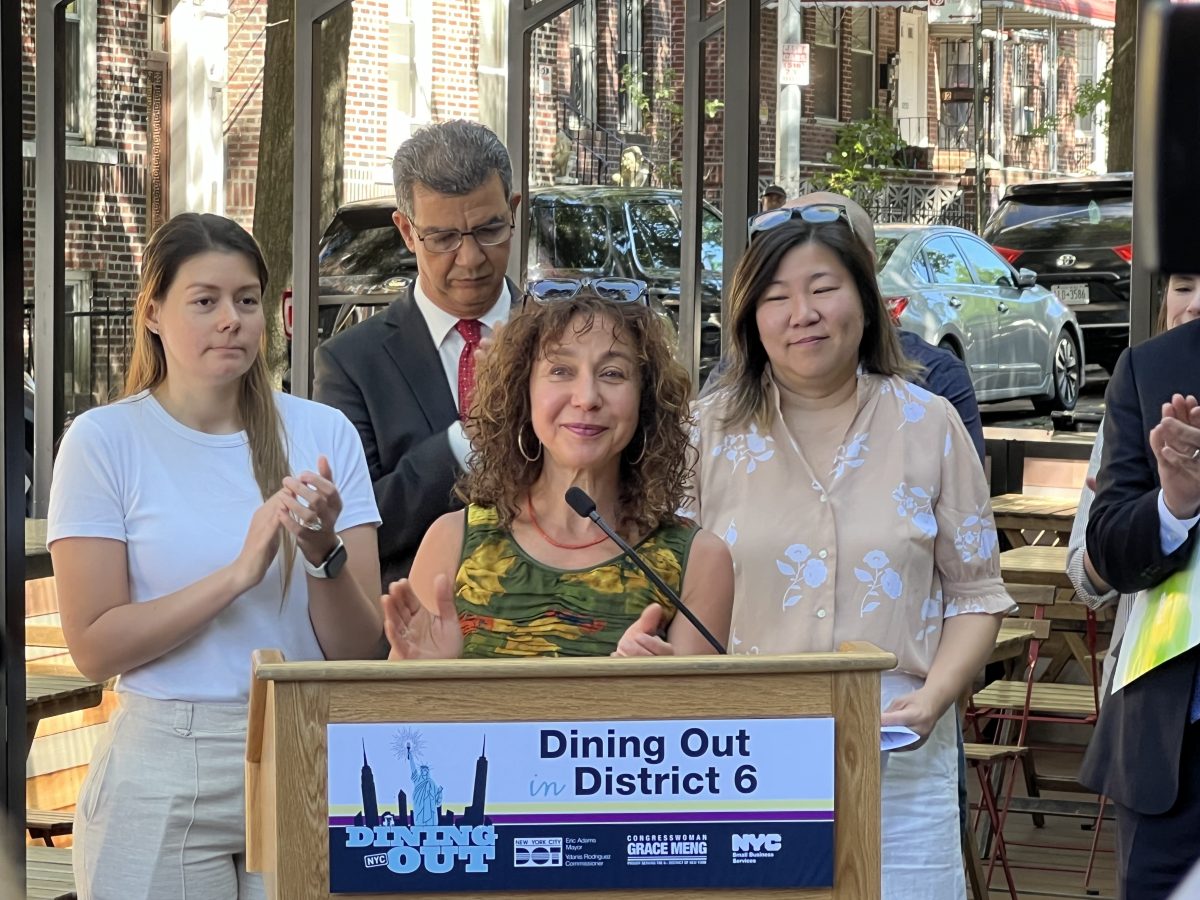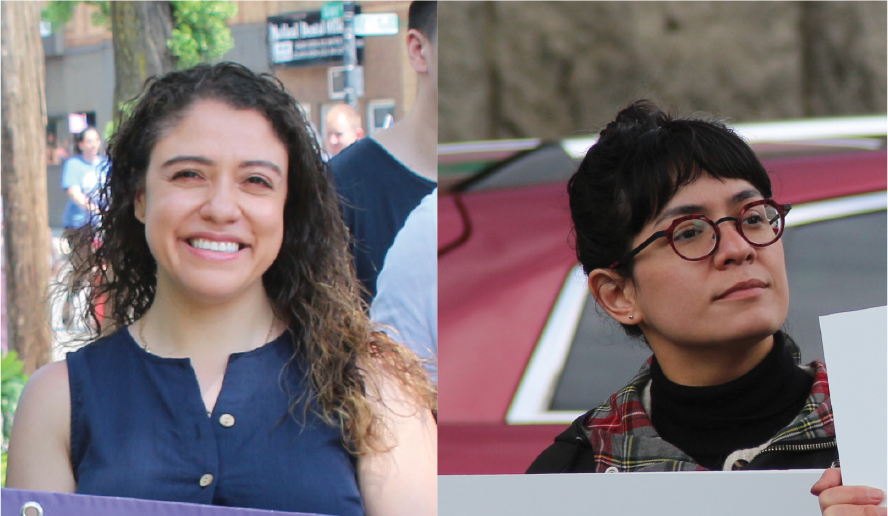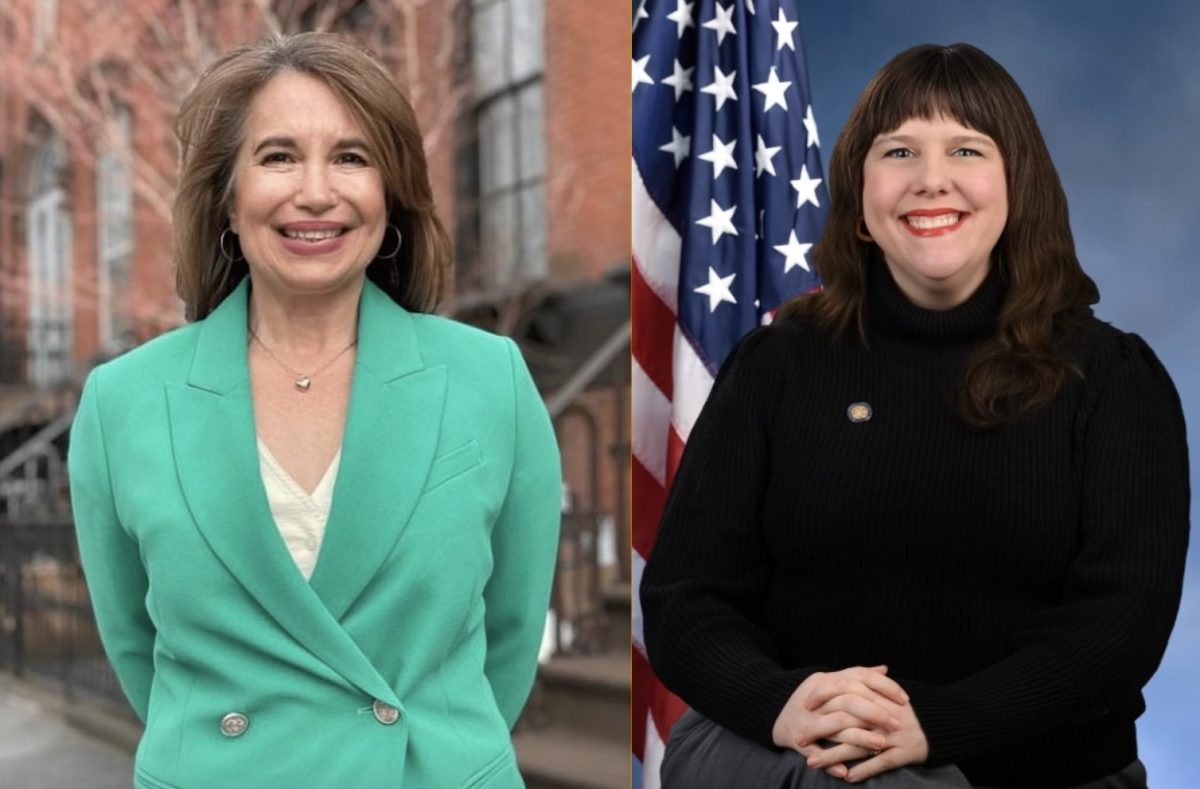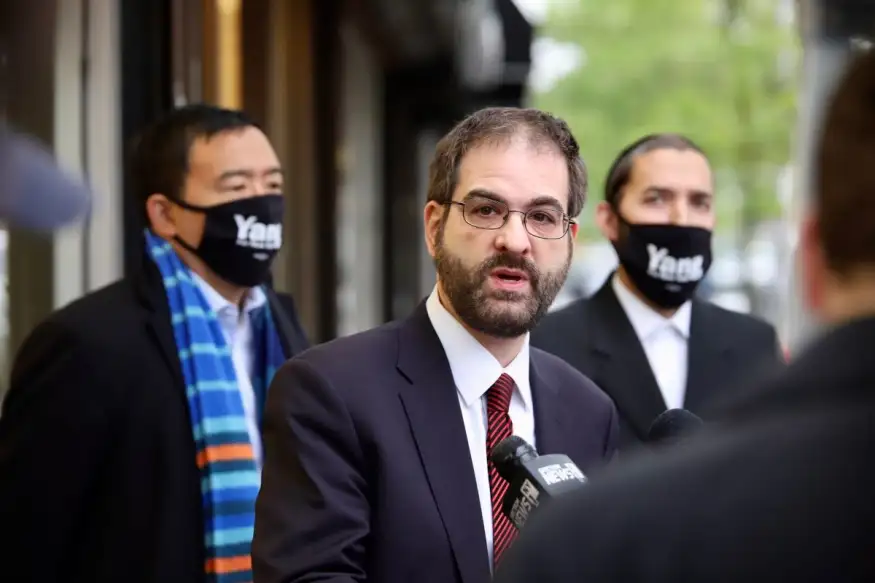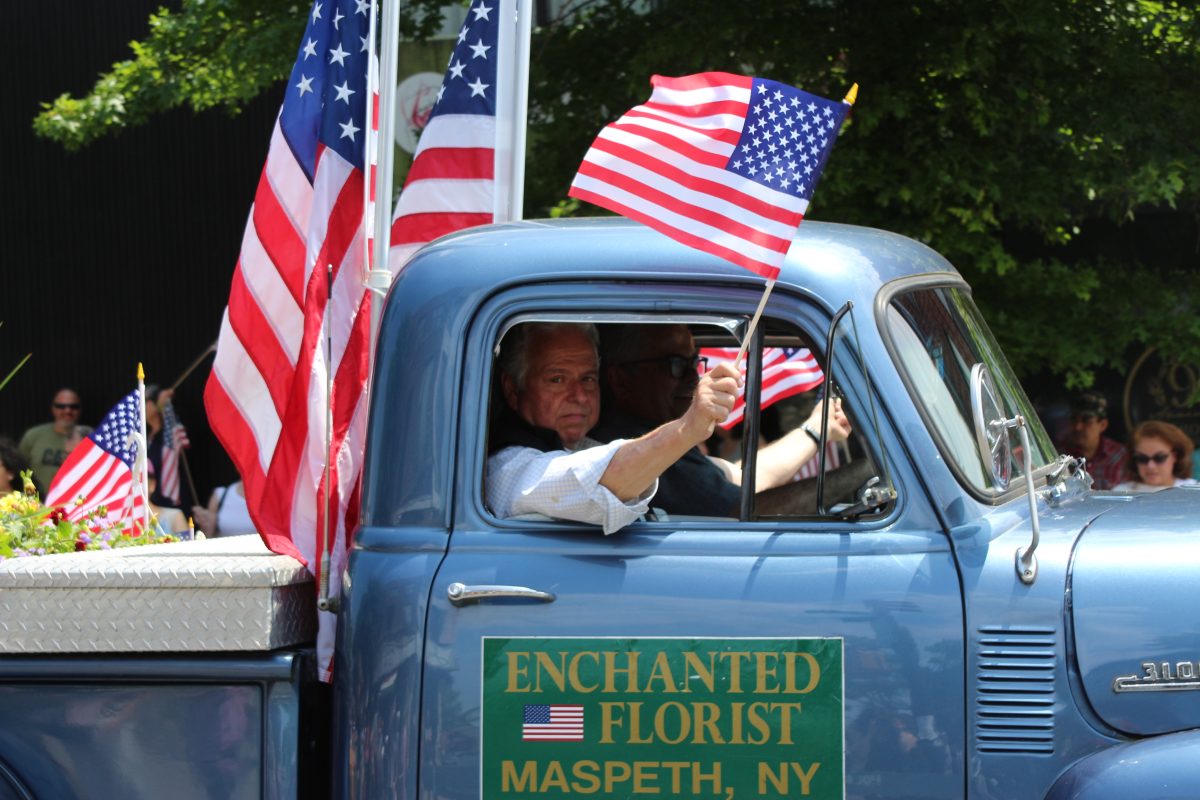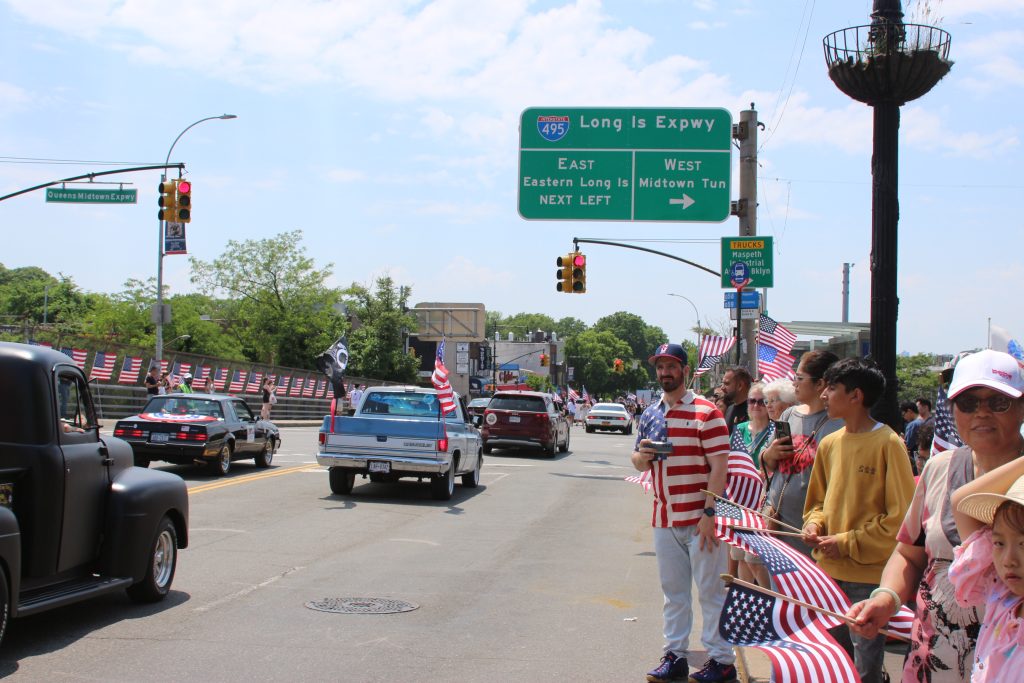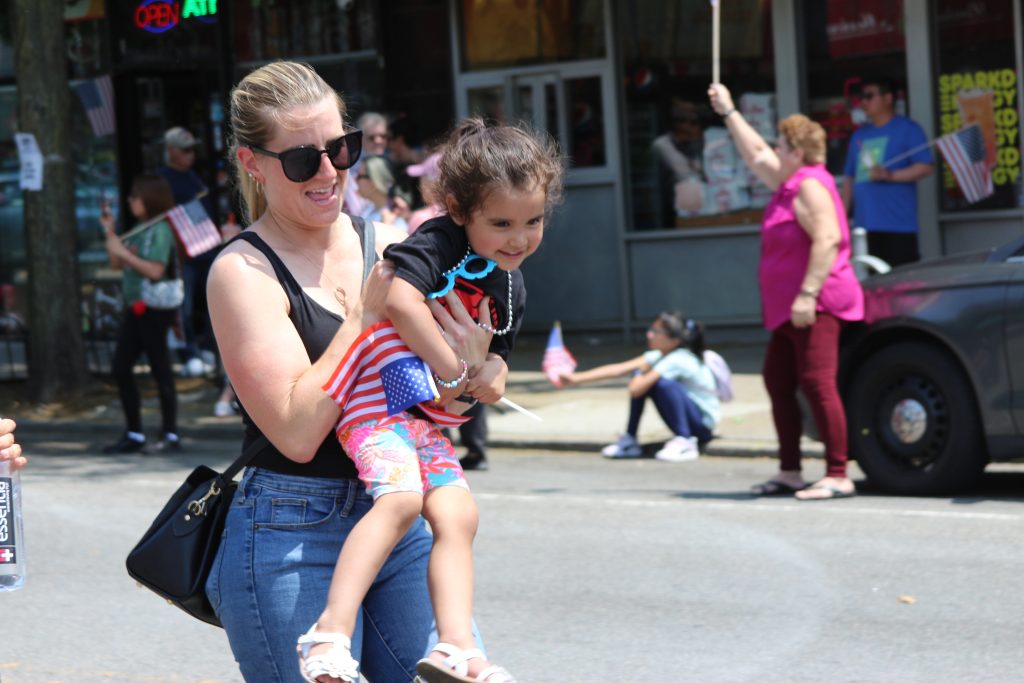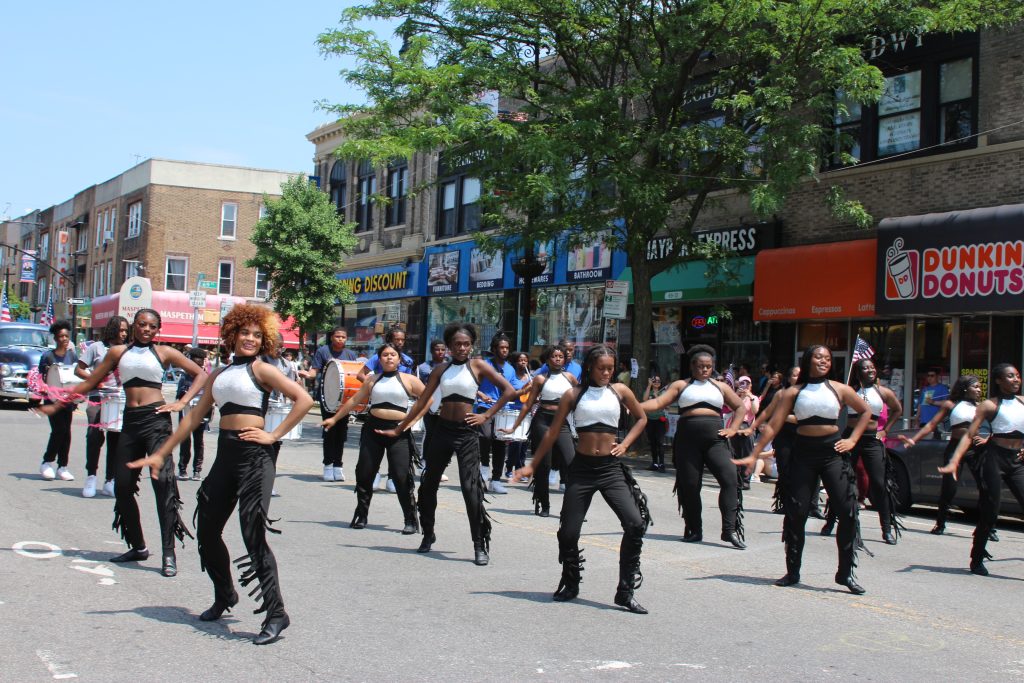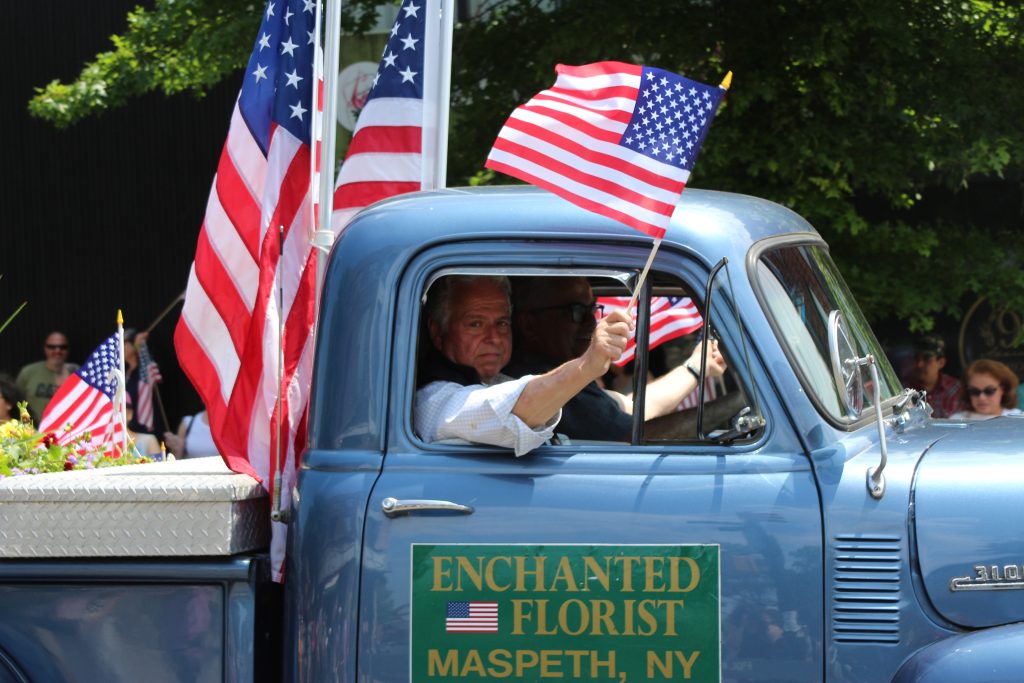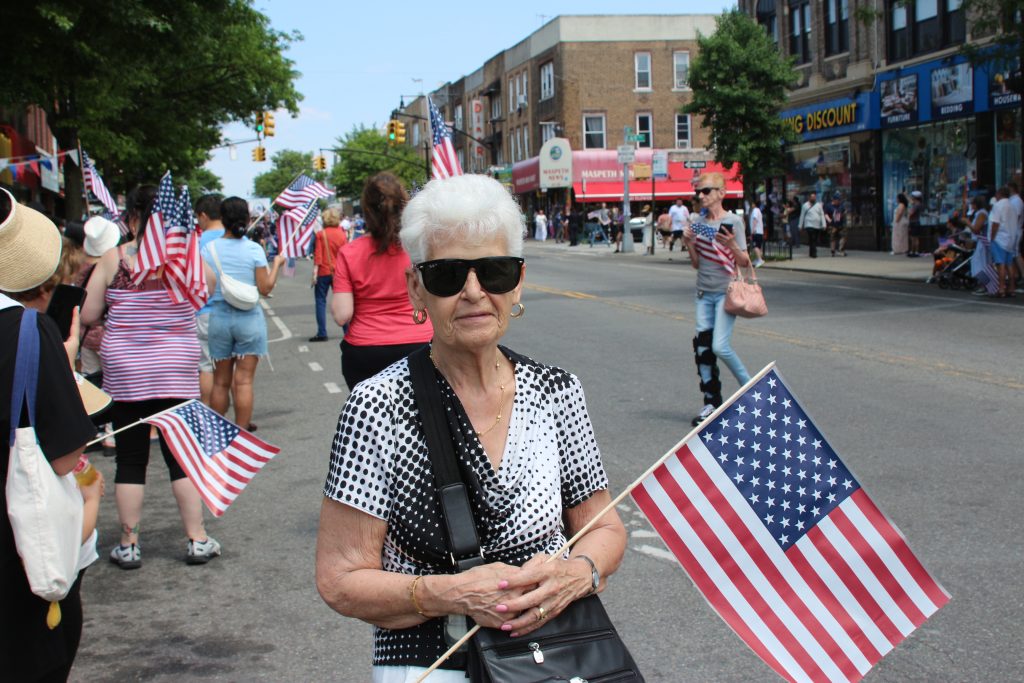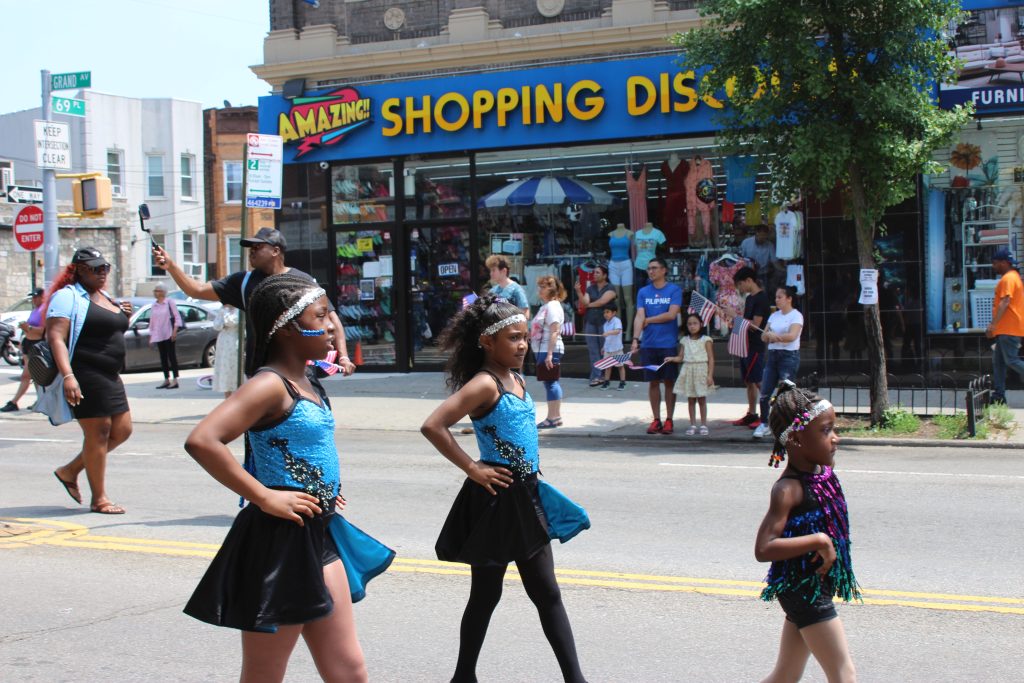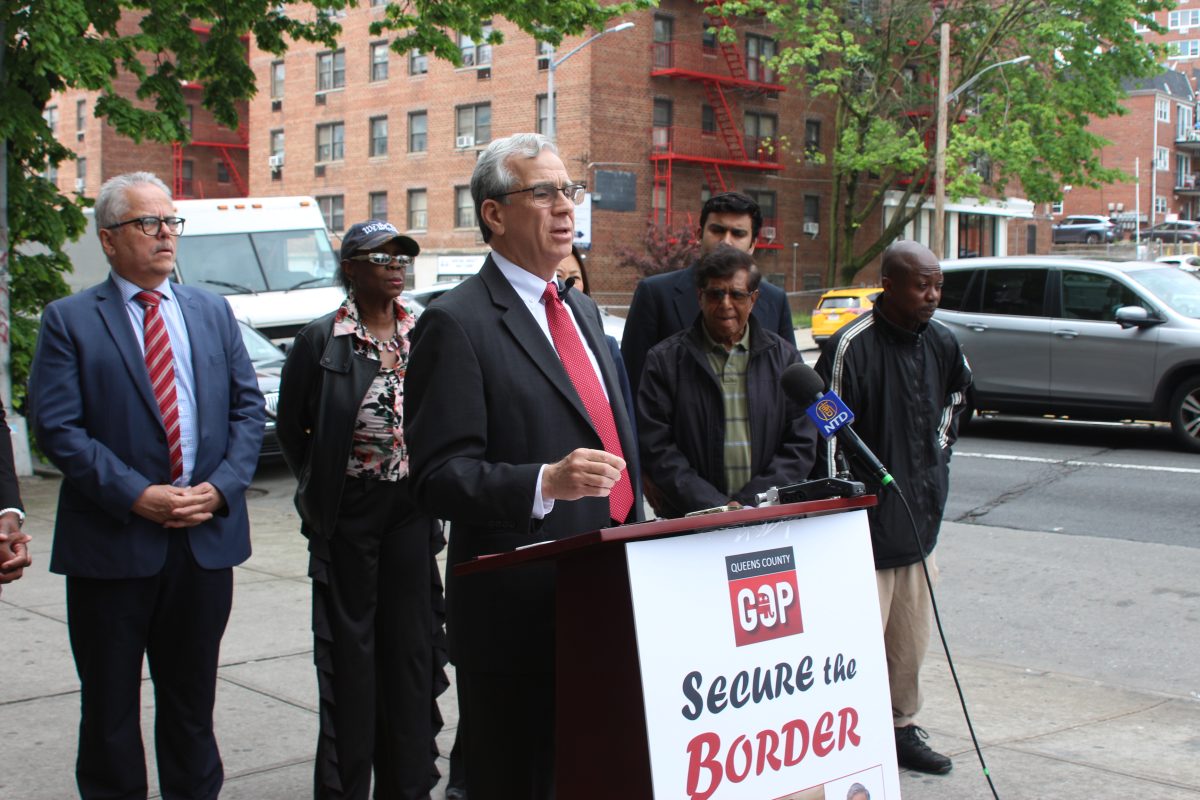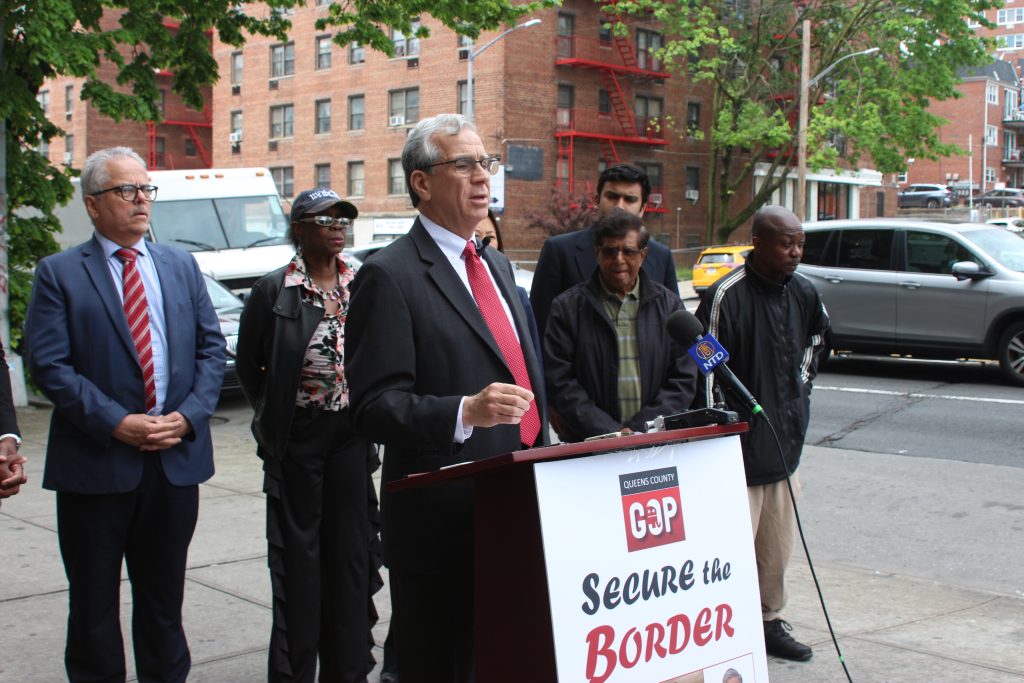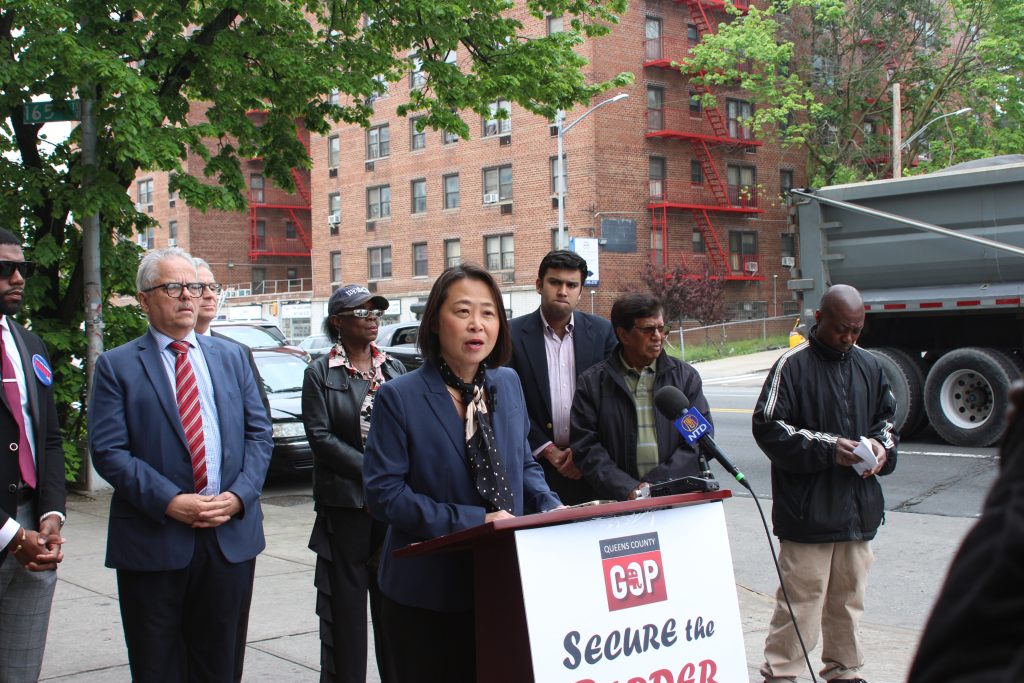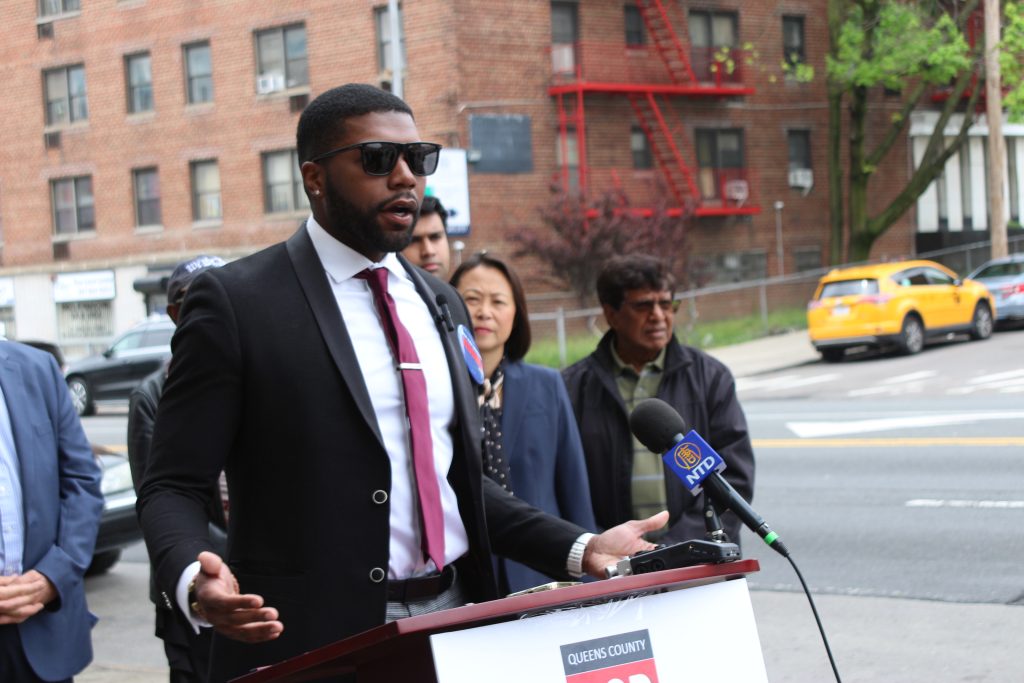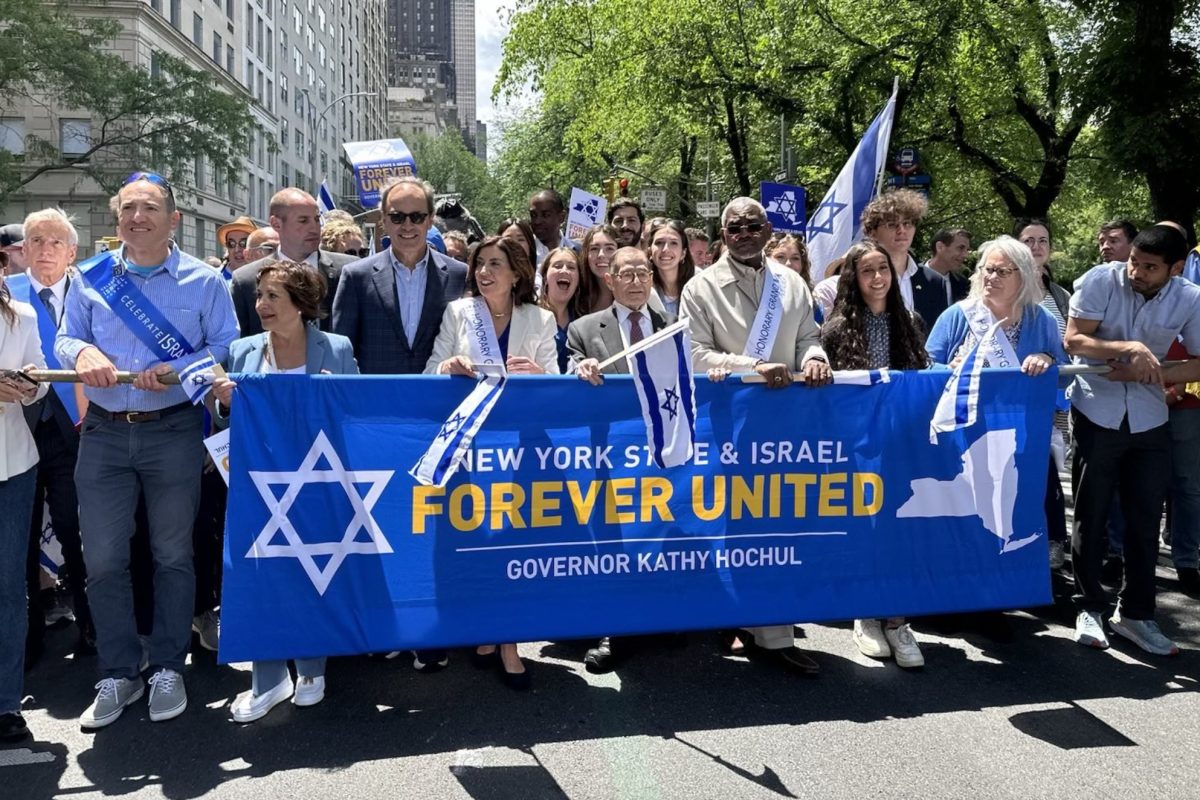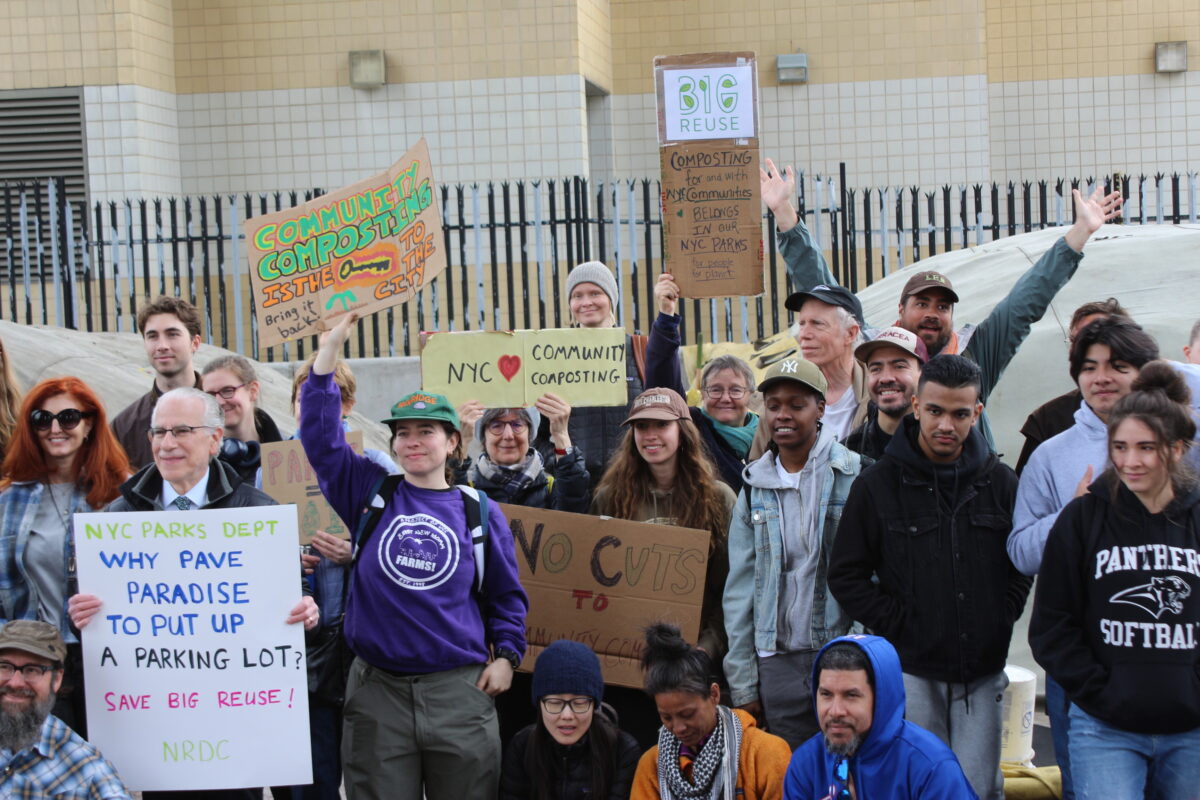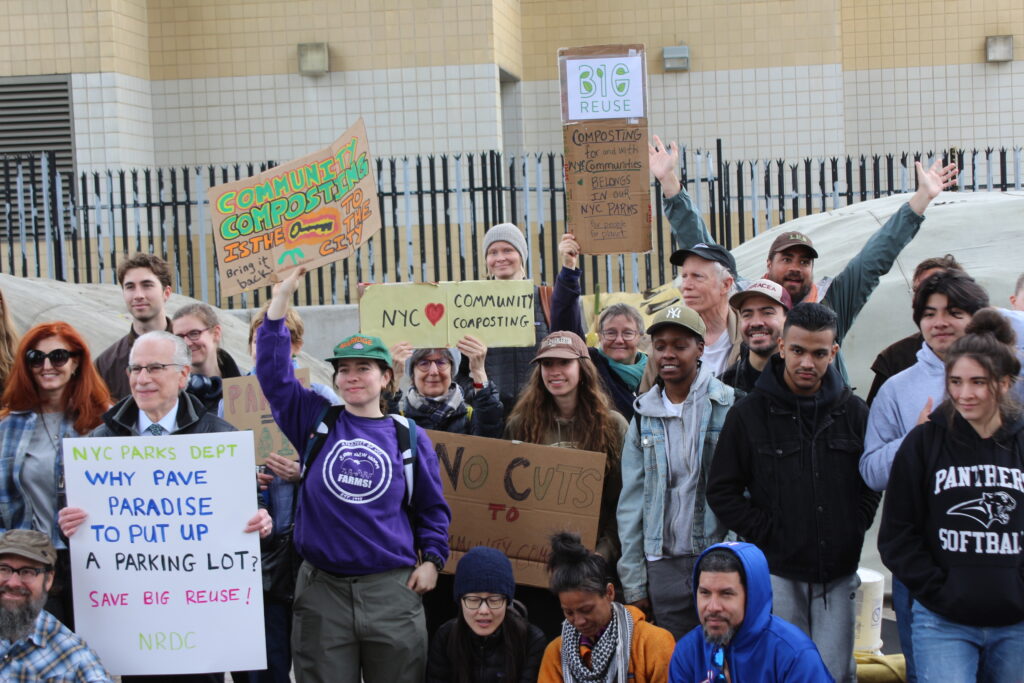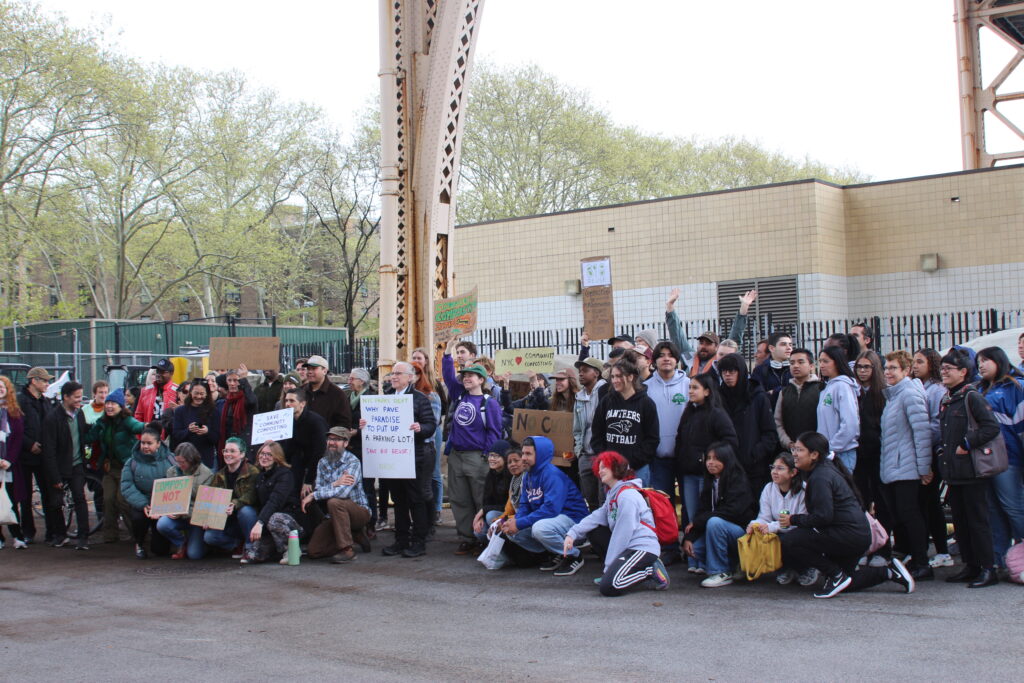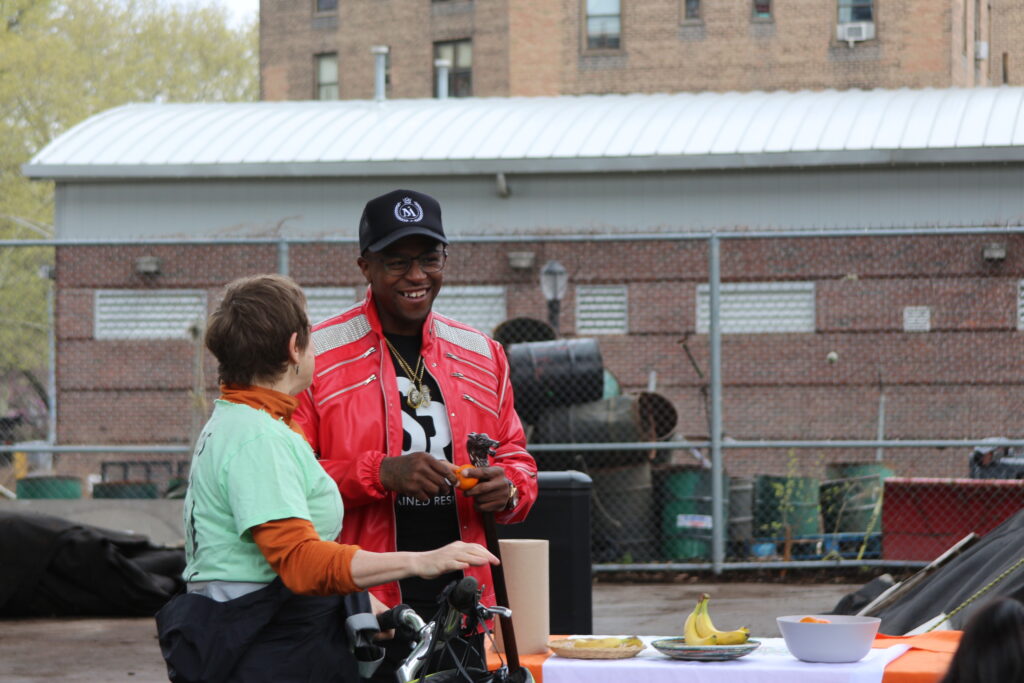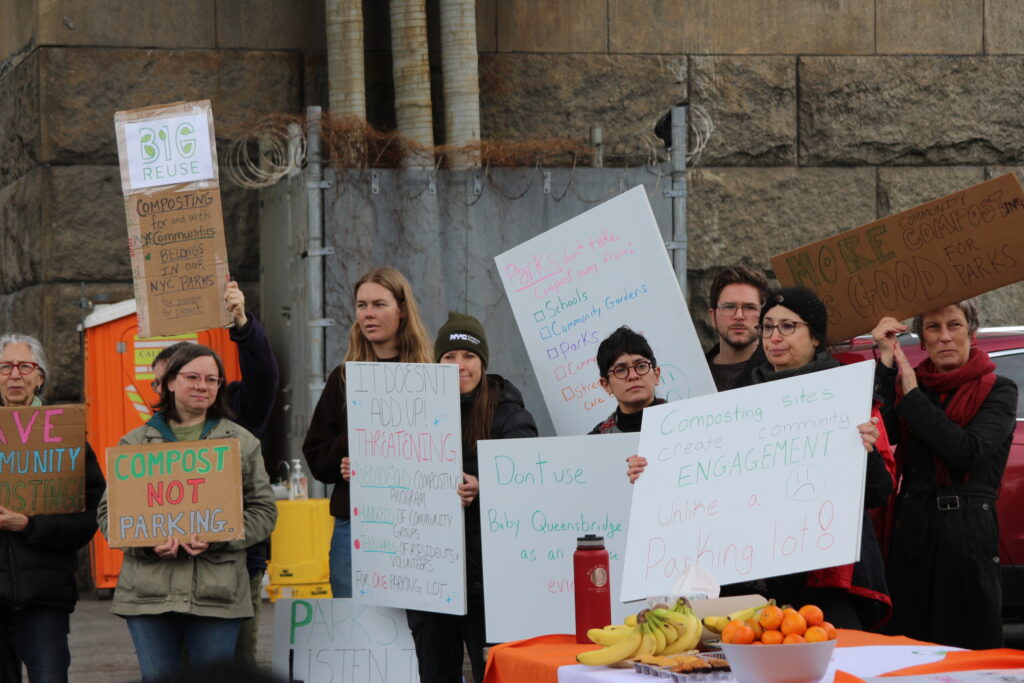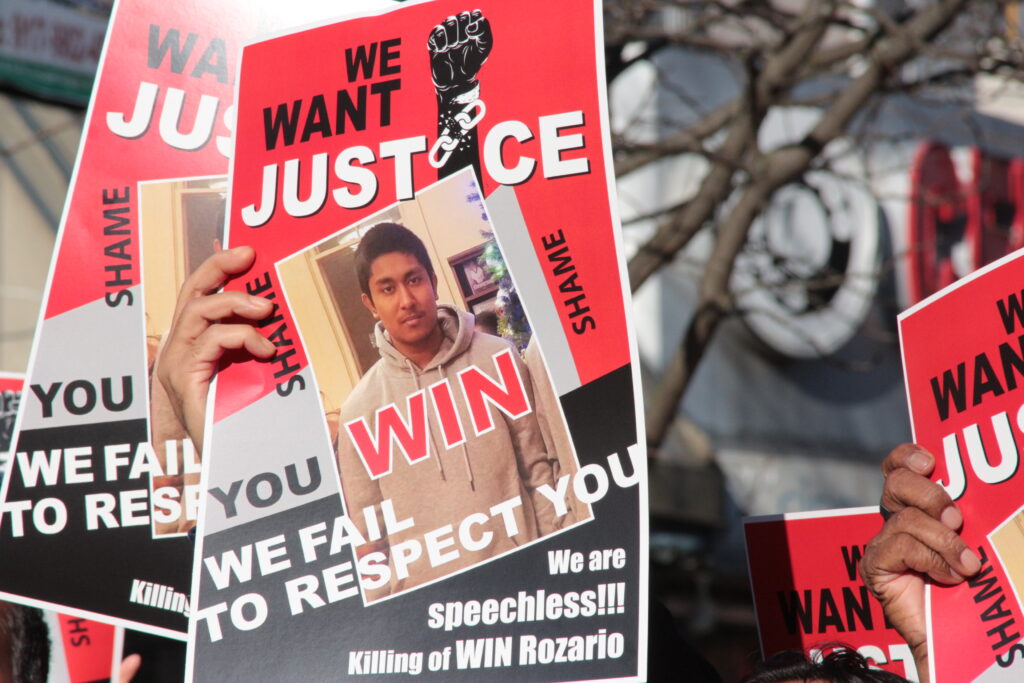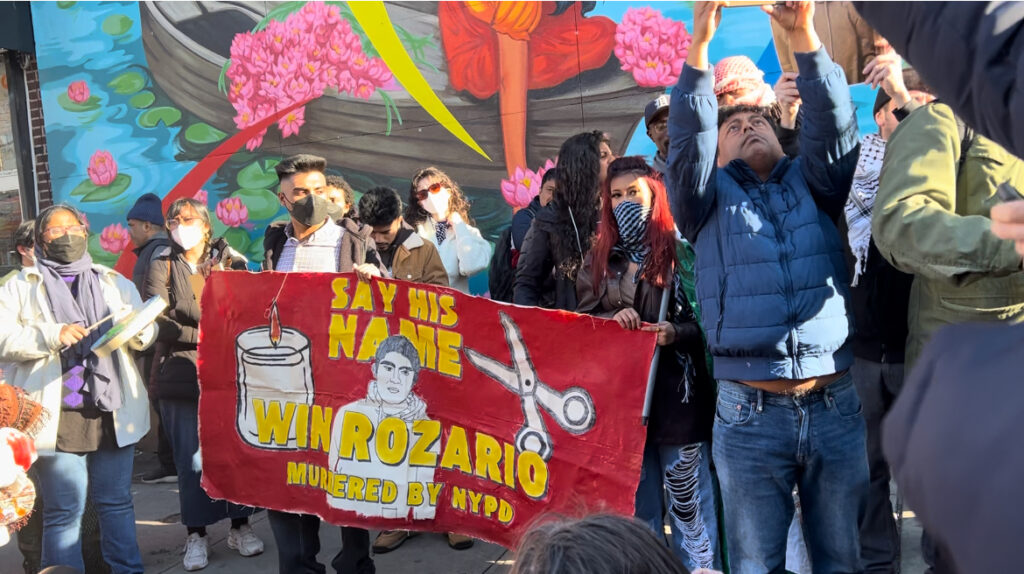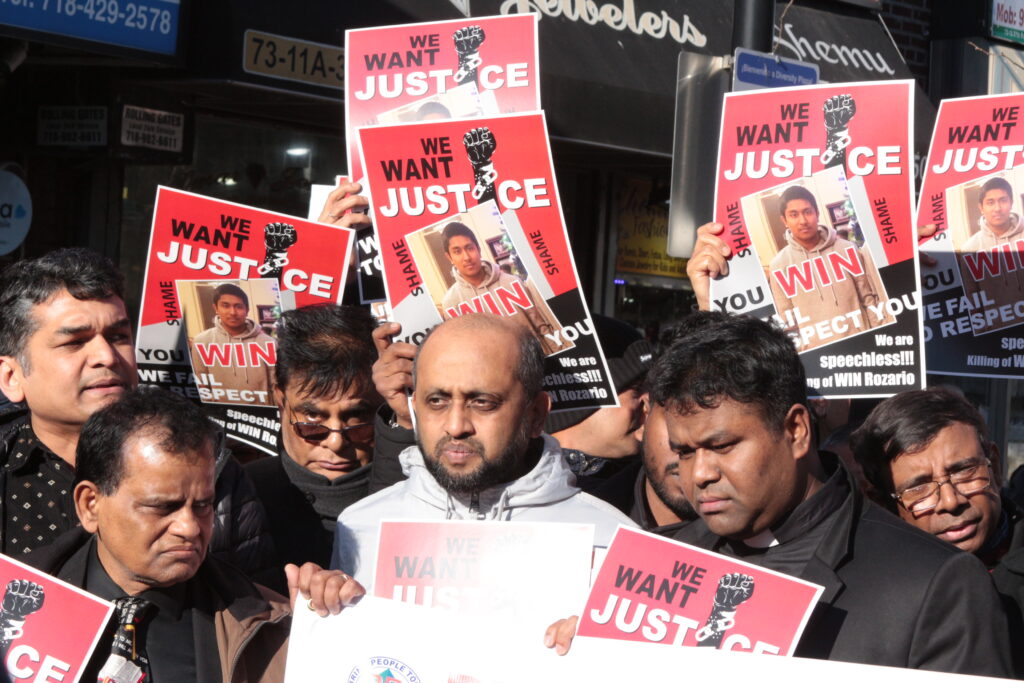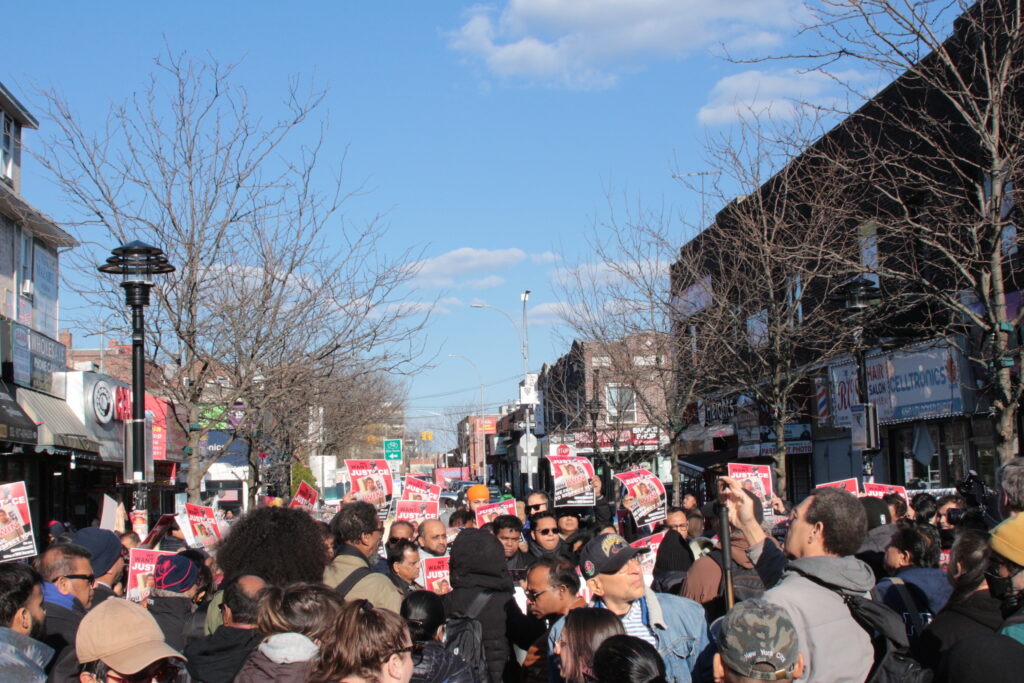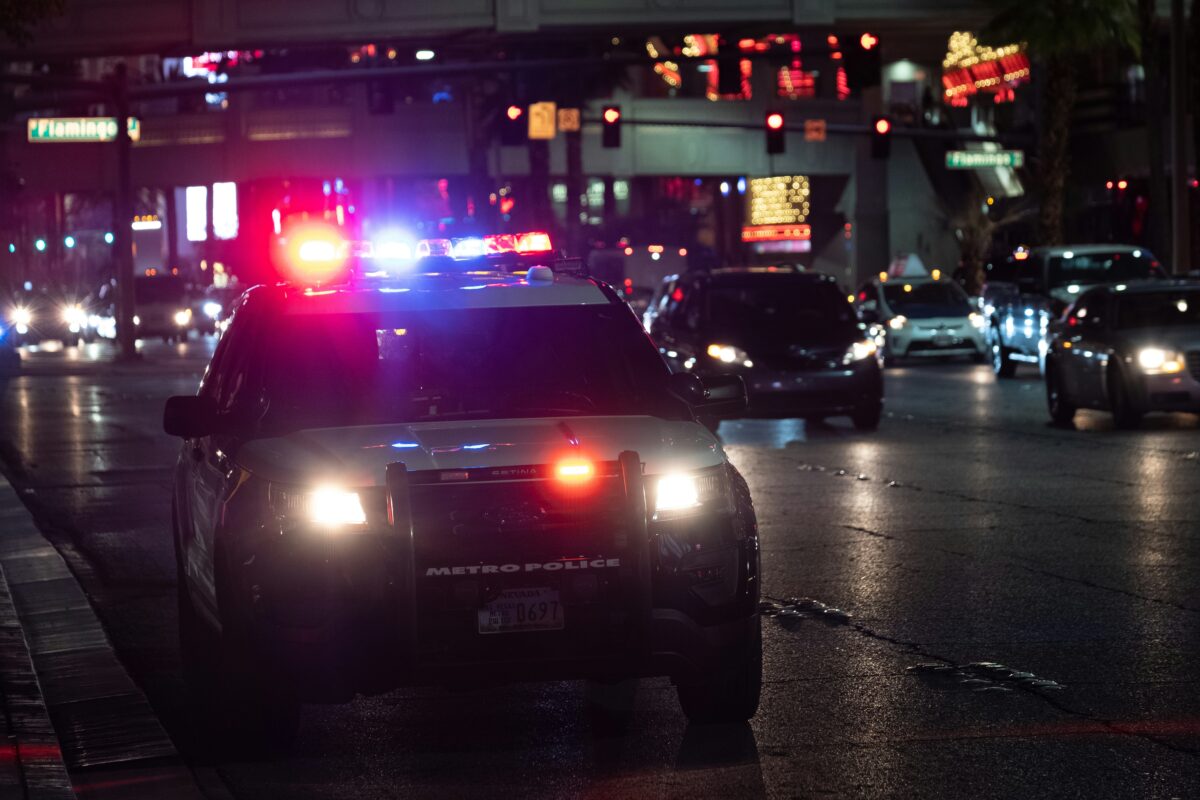By Celia Bernhardt | cbernhardt@queensledger.com
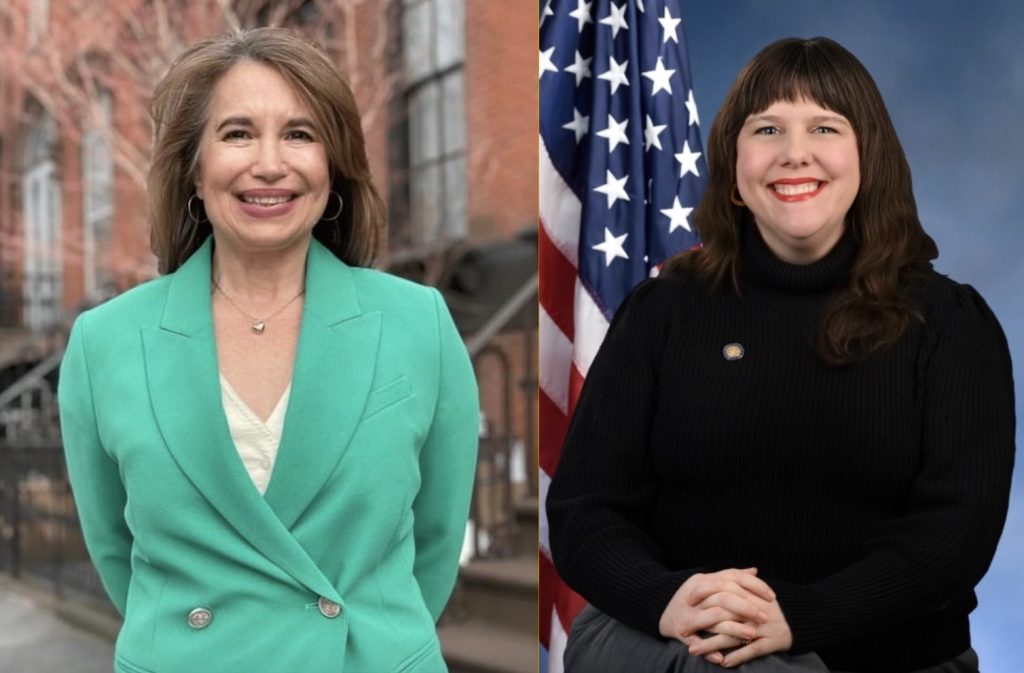
Courtesy of @AnatheaforNY and https://nyassembly.gov/
Emily Gallagher, a member of the DSA’s eight-person Socialists in Office caucus in Albany, is among the most progressive lawmakers in the state; the LLC Transparency Act and the All-Electric Buildings Act are among her legislative victories. She won her seat in Greenpoint and Williamsburg’s Assembly District 50 in 2020; prior to that, she researched environmental issues relevant to the district, worked at an education nonprofit, and engaged heavily with local activism. Her campaign pulled off a stunning upset by unseating third-generation lawmaker and 48-year incumbent Joe Lentol who outspent her ten to one; Gallagher found success in the increasingly liberal district amidst a larger wave of younger progressive newcomers taking on long-serving establishment representatives.
Now a crowd of local moderate Democrats, along with some powerful corporate donors, are aiming to take the seat back from the progressive wing. Gallagher is facing her first well-resourced challenger as an incumbent in Anathea Simpkins, a former teacher and single mother who currently serves as Associate Vice President of the gun violence prevention organization Sandy Hook Promise. Simpkins has identified herself as a Lentol protégé and benefits from the support of Brooklyn’s politically powerful Broadway Stages company, which has fought against the DOT’s proposed redesign of McGuinness Boulevard. She has her strongest local support among a more moderate crowd that opposes the DSA and is sentimental for Lentol’s reign.
The race is one of several throughout the boroughs that find themselves within a very expensive push to defeat DSA candidates in Democratic state primaries, drawing eyes and dollars from outside the district. Simpkins is one of ten assembly candidates receiving support from Solidarity PAC, a pro-Israel group with significant real estate interests spending against (mostly) DSA picks; nearly half of her funds through May 20 came from the group. Various independent expenditure groups have joined in on the campaign finance drama as well. The pro-charter school group Moving New York Families Forward, funded by Walmart heir Jim Walton and former mayor Mike Bloomberg, has dropped over $100,000 on Simpkins so far.
Simpkins’ campaign centers on an argument that the district is rife with division and that Gallagher is to blame. She frames herself as a mediator and a listener; her campaign motto is “putting the unity back in community.”
“I’m part of a group of moms that have been disheartened with the state of affairs in Greenpoint and Williamsburg for a while now,” Simpkins said in an April interview with the Queens Ledger. “I’ve been here for 17 years, and I’ve seen a lot of concerning trends over the past few years. We’ve never seen so much us-versus-them language, and pitting neighbors against neighbors, and ideologies instead of bringing people together to accomplish shared goals.”
Gallagher has always presented herself as a fighter. She established herself in the district as a local activist and community board member, organizing around issues including environmental justice, bike safety, housing, and sexual assault prevention. In an April interview with the Ledger, Gallagher pushed back against Simpkins’ messaging about political divides and bridge-building.
“What I’ve learned through doing advocacy for so long is that it is impossible to make everyone happy all the time, and there has to be a moral center to what you’re doing. Otherwise, you become a pawn for people with a persuasive interest, and usually that persuasive interest is big business,” Gallagher said. “We can see from what’s happening with the election, and the support that both of us are getting, that being a mediator and a peacemaker between people who have historically had significant power in this community, and people who have never had any power in this community — it gets messy.”
She added, “I’ve shifted the center of power, and that’s what people don’t like. I think that that’s okay. I think people need to learn to compromise, and I think that right now, I’ve been asking people to compromise who traditionally have never had to compromise, and that’s where the conflict comes from.”
On the Issues
When candidates speak in broad strokes about division and compromise in the 50th district, McGuinness Boulevard is often the issue under the surface.
Street safety advocates and local residents catalyzed by traffic-related deaths on the busy road have organized with the group Make McGuinness Safe for street safety improvements, eventually winning a proposed redesign from the DOT in May 2023 which included lane reductions, parking-protected bike lanes and pedestrian islands. An opposing group named Keep McGuinness Moving — organized in large part by the Argento family, which owns Greenpoint’s film production company Broadway Stages and donates generously to Democratic candidates across Brooklyn — campaigned hard against the proposal. Mayor Adams walked back the DOT’s plan for lane reductions in July 2023. The path forward for the project is unclear.
Gallagher has long been outspoken in support of the redesign and has torn into the campaign against it, while Simpkins advocates for coming up with an altered proposal.
“I think there are things that can be done to increase safety that don’t necessarily mean cutting down our only main artery and diverting trucks,” Simpkins said at a town hall campaign event, suggesting more crosswalks, improved arrow signals on traffic lights, and raised medians.
Simpkins has received at least $6,250 from the Argentos and has been enthusiastically endorsed by Keep McGuinness Moving. Gallagher received $5,150 from the family between 2021 and 2022, but said she decided to stop accepting funds from them after they succeeded in getting Adams to walk back the DOT’s plan.
“I could see that there could be a miscommunication there that the money that was being given was meant to influence my decisions,” Gallagher said.
Simpkins maintains that financial and political support from the Argentos has not influenced her own position on the issue.
“For the assumption to be made immediately that, because I’ve taken donations, I am being controlled by a man, is flat-out misogynistic,” Simpkins said in an April interview.
The candidates have clearly diverging platforms on Housing, a hot button issue in the ultra-gentrified district. Gallagher was one of two architects of the Social Housing Development Authority bill introduced this past February, which calls for a new state agency to build permanently affordable cooperatively-controlled housing with union-only labor; she was also a supporter of the original Good Cause legislation. Simpkins, meanwhile, has mostly stuck to supporting the housing policies that did make it through the state budget in the end: she refrained from supporting Good Cause until its modified final version passed the budget, and has stated her support for the new 485-x affordable housing tax incentive passed to replace the 421a. Simpkins has also emphasized her support of small “mom and pop” landlords in the district.
“We have to stop villainizing landlords. That is something that has become a battle cry of the Democratic Socialists,” Simpkins said at a town hall event in late May.
When asked by the Queens Ledger if she had ideas as to how to keep the district affordable for long-time renters, Simpkins said the issue “goes into so many things that need to be unraveled.”
“This is something that I’m willing to work on and learn more about — again, anybody who comes up here and says they know 100% about anything is lying. So it’s something that I do need to learn about. What I do know is that it needs to be addressed immediately,” Simpkins said.
Gallagher has been fully supportive of Congestion Pricing and outspoken in her disapproval of Hochul’s decision to pause its implementation. Simpkins has been quieter on the issue since that most recent development, but outlined in her transportation policy platform that she would support exemptions for union members and low-income commuters.
Education is an issue Simpkins has put front and center in her campaign. While there are few immediately clear distinctions between Gallagher and Simpkins’ approach to the issue, Simpkins has emphasized her first-hand experience with the school system as a teacher. “I got into this because I wanted to fight for our schools,” Simpkins said in a May interview. “I want to be the education expert in Albany.”
“I have a deep knowledge of education policy, a deep understanding of it, and I understand how education works. We haven’t had any policy come forward that has to do with education. We have our schools suffering,” Simpkins said in an April interview, emphasizing her opposition to funding cuts for 3K, Pre-K, and after school programs. In a May interview, Simpkins alleged that Gallagher had made “no visits” to the district’s schools.
Gallagher’s chief of staff, Andrew Epstein, had different things to report about Gallagher’s interaction with the issue locally and in Albany.
“[Gallagher] was part of the fight that finally fulfilled New York State’s Foundation Aid commitments and fully funded K-12 education for the first time in state history. She’s dedicated hundreds of thousands of dollars in capital funds to making sure schools have the facilities and resources that they need,” Epstein said. “She’s visited every single school in the district, some of them multiple times.”
Gallagher has highlighted Simpkins’ support from big spenders in support of charter schools. Commenting on one mailer from Moving New York Families Forward, Gallagher wrote that the advertisements “never mention the actual issue that’s motivating these billionaires to spend against me: charter schools and the privatization of public K-12 education.”
Simpkins said that her campaign does not coordinate with PACs. “First of all, I don’t know anything about that. We don’t have any participation with the PACs that do marketing on our behalf,” she said in a May interview.
“I think that charter schools which are in existence need to be held to the same requirements, the same oversight as public schools,” Simpkins said. “I think that there should be a cap on charter schools. I think that we should be investing in our public schools and not putting a bandaid on things, because that’s what’s happening.”
Constituent services are another area where Simpkins has levied frequent critiques against Gallagher, alleging that they have “fallen off a cliff” since the incumbent took office. “You need to make sure that you have an active presence, that you provide language access, that your assembly office is visible, that it’s easily accessible by everyone in the district,” Simpkins said in a May interview, adding that she would provide longer hours and a streamlined process to make appointments online.
Epstein said Simpkins’ criticisms were “so wildly inaccurate, it feels like it’s coming from another planet.”
“The first thing that Emily did when she took office in 2021 was to move the district office, which had previously been tucked away in a pretty difficult to access part of the district for most constituents, and put it smack-dab on Manhattan Avenue in the heart of Greenpoint,” Epstein said. “We are there five days a week with a storefront office. We have an incredibly energetic and caring constituent services team that processes dozens of cases every single week. We are on the regular paths of elders in our communities who stop by to check on their cases or just to say hello.”
Party Power
Simpkins is not officially endorsed by the Brooklyn Democratic Party, but her campaign is in alignment with the goals of some of its top leadership. Party boss and Assemblymember Rodneyse Bichotte Hermelyn has been an ally to the Argentos, supporting the Keep McGuinness Moving project. She also doled out an official party endorsement to Averianna Eisenbach and Everton Smith, two district leader candidates running in alliance with Simpkins (Eisenbach is a co-founder of Keep McGuinness Moving). It might be particularly crucial for Bichotte Hermelyn’s security as party chair to usher in as many votes as possible for that slate; her number of allied district leaders shrank from 26 to just 22 out of 40 after the 2022 primaries.
Simpkins has aligned herself closely with Lentol, referring to him as her mentor and working with one of his former staffers on her campaign. The former assemblymember introduced Simpkins to a crowd of supporters at her campaign launch, and he was there at her town hall event in June.
“He was in office for a long time. And I know that a lot of people felt like maybe it was time to hand the torch off, and I understand that,” Simpkins said in an April interview with the Ledger. “[But] he was really well-respected and he was able to act as the adult in the room — and that’s kind of my inspiration here.”
Since leaving office, Lentol has attended multiple Keep McGuinness Moving events; he took $16,900 from Anthony and Gina Argento himself while in his seat.
Lentol’s long tenure in the Assembly made him well-equipped to secure funds for the district. Thanks to an unofficial spoils system in the state legislature which rewards seniority, he was able to take home a large portion of earmarked taxpayer dollars to distribute to projects and programs in the district. His tenure had also enabled longstanding relationships between the representative and local organizations used to receiving a steady supply of those funds. All that was inevitably shaken up when Gallgher won; one progressive organizer in the borough said that those who are peeved to have lost their priority for funding in the transition may be among Simpkins’ backers.
State of the Race
Gallagher started out 2024 with about $68,000 to spare and raised a total of $77,850 since then, securing $148,544 in matching funds. Simpkins, after launching her campaign in late January, racked up funding quickly — she has raised a total of $120,145 since then, pulling in $114,615 in matching funds.
Overall, Simpkins has spent more than twice as much as Gallagher has, reporting $190,667 in expenditures.
Things have only gotten hotter in the final weeks before votes are counted. Simpkins spent about $84,940 in the month of June alone (Gallagher reported spending $23,700 over the same period). Moving Families Forward also made their $100,000 in expenditures for the challenger in late May and throughout June.
A New York Focus analysis found that approximately 45% of Simpkins’ donations up until May 20 came through Solidarity PAC. Since May 20, Simpkins has raised another $33,883.55: $28,900 of that is from just 11 individuals who also donated to the PAC in the same time period.
As spending has climbed, so has online discourse and drama. Simpkins has taken many opportunities to make harsh criticisms of Gallagher via X throughout her campaign — an article from the New York Post about the assemblymember’s tickets, a publicly proposed debate that she did not attend, and ongoing political turmoil regarding Community Education Council 14 have served as sticking points. Gallagher has been hitting back more as the election draws closer, generally focusing on Simpkins’ corporate donors.
In a Thursday X exchange, Simpkins posted an apparently covertly-recorded video of a union carpenter stating his support for Trump in conversation with a passerby while canvassing for Gallagher. “My opponent has no local labor support, which is why she’s relying on Trump supporters to canvass for her,” Simpkins wrote about the video — prompting a scolding from the union’s political director and response from Politico journalist Jeff Coltin who pointed out that Gallagher has the support of over a dozen local unions. “Labor aligns with DSA when they’re incumbents,” Coltin reminded X users.
On Friday, a truck drove around the district sporting a huge digital screen reading “Anathea Simpkins has been bought and paid for by Real Estate/ Sincerely, The Carpenters Union.”
Gallagher has the advantage of a wealth of endorsements. Aside from blue collar unions and myriad progressive organizations, Gallagher has the backing of Planned Parenthood, Eleanor’s Legacy, the United Federation of Teachers, and the New York State Nurses Association. She added an endorsement from Congresswoman Alexandria Occasio-Cortez to that list on Tuesday — the same day the congresswoman endorsed Larinda Hooks, who is running an increasingly competitive race in Queens.
Simpkins, for her part, recently secured the backing of the National Association of Social Workers’ local chapter. She’s supported by three other unions, including the local Uniformed Fire Officers Association and Theatrical Teamsters Local 817 (largely representing employees of the film industry). Simpkins cross-endorsed Gabi Madden, a fellow Solidarity PAC endorsee challenging a DSA incumbent in the Hudson Valley, in late May.
The contentious primary season in the district will come to a close on Tuesday, June 25. You can find your local polling site here; early voting hours run until 5 p.m. on Saturday and Sunday.
Editor’s Note: Emily Gallagher formerly worked as a columnist for BQE Media.
Editor’s Note: A different version of this article was published in print on June 20, 2024.
